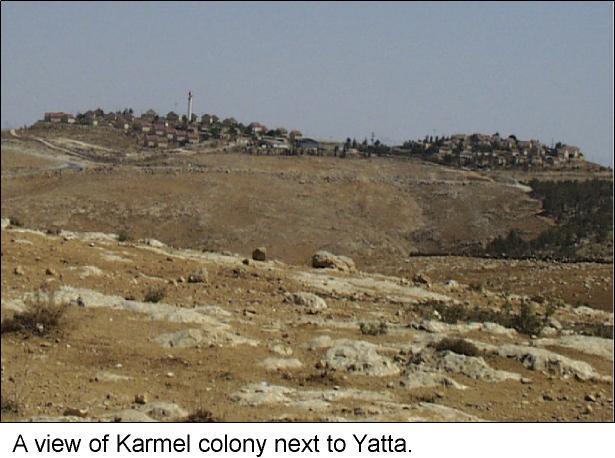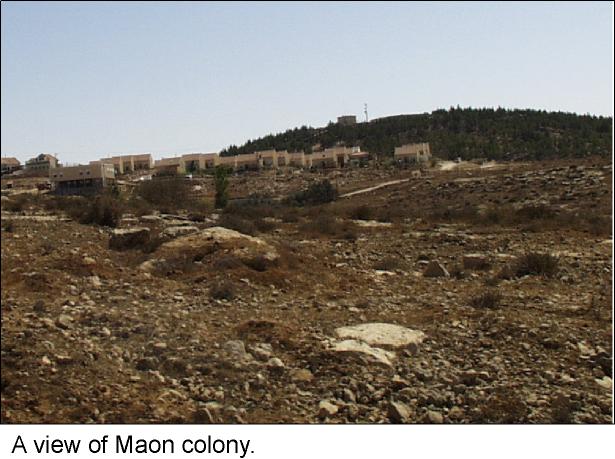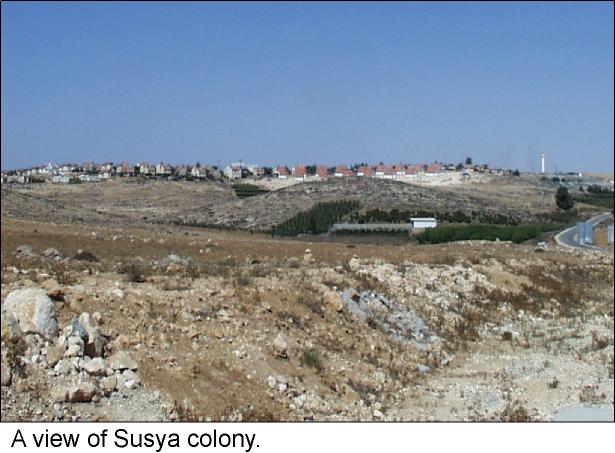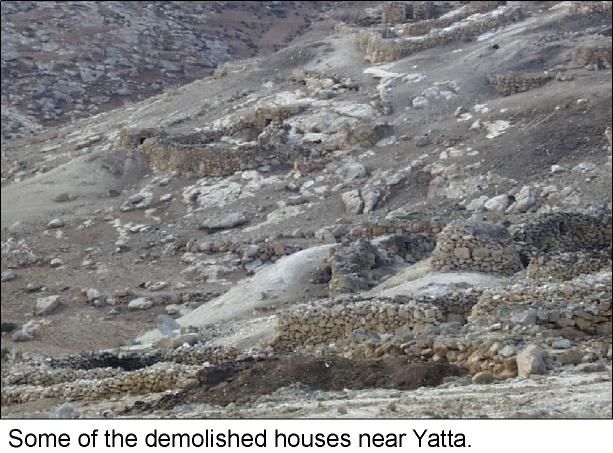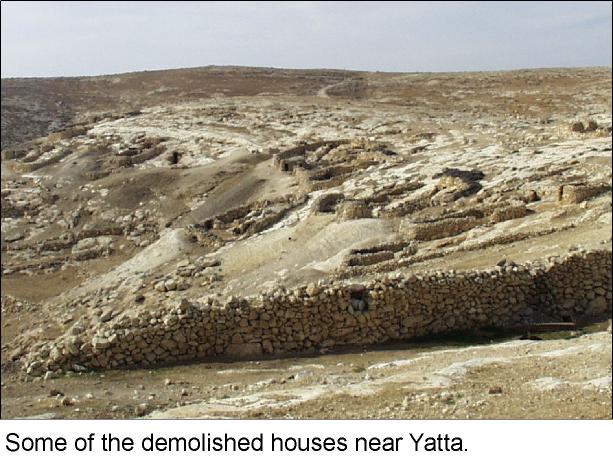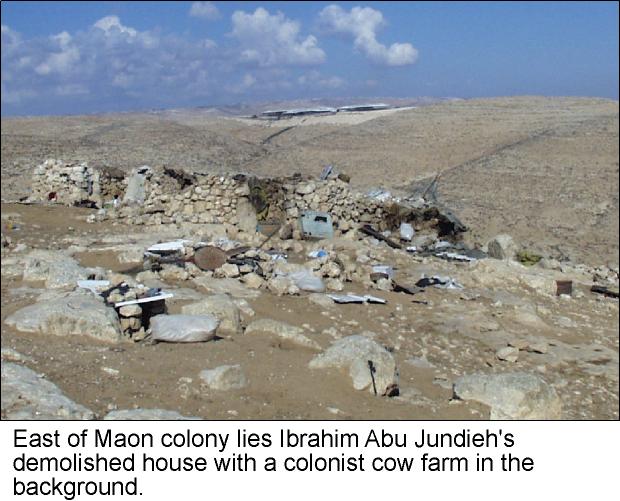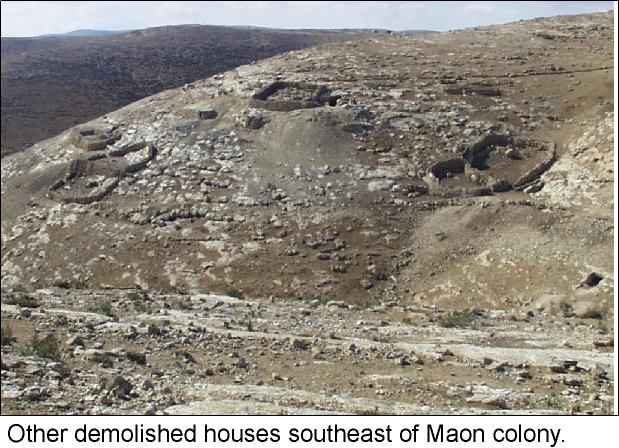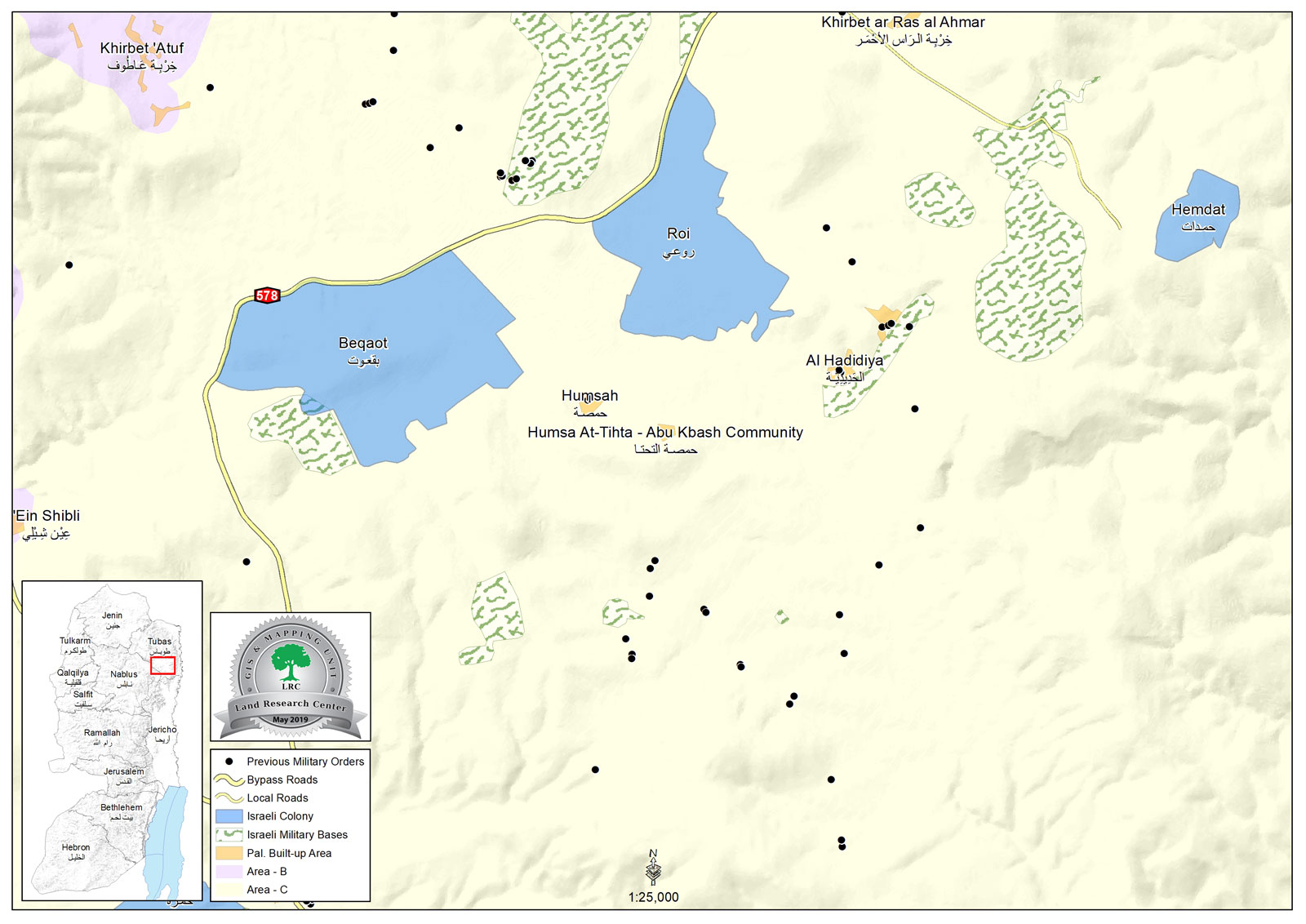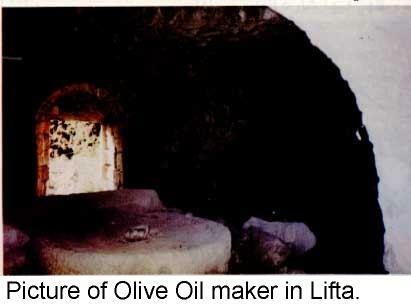In the southeastern part of Hebron district lies the rural community of Yatta. It has a population of approximately 30,000 and is surrounded by several small communities that depend mainly on agricultural and livestock for living. As is the case with all Palestinian communities in the West Bank, Yatta and the villages around it suffer from the presence of Israeli settlements in their vicinity.
Israeli colonization in the Yatta area started as early as 1981 and today there are four Israeli settlements (Beit Yattir, Karmel, Maon and Susiya) next to Yatta, with a total population of over 800 colonists.
Table 1: The settlements next to Yatta.
|
Israeli Settlement |
Establishment Date |
Population in Dec. 98 |
|
Karmel |
1981 |
233 |
|
Maon |
1981 |
246 |
|
Susiya |
1983 |
415 |
|
Beit Yattir (Mezadot Yehuda) |
1983 |
404 |
Source: Population of the Israeli Settlements on the West Bank and Gaza Strip, Settlement Watch, Peace Now.
In the last few months scores of families living between Yatta and the Dead Sea have been evicted and their houses demolished. Israeli authorities have evicted over ten families since September claiming that new military orders closed off the areas in which they were living Click here for more. The houses however were demolished under the pretext of being built without permits. Journalists trying to cover the incidents were denied entry and thus the reports were based on personal accounts of what happened.
Ibrahim Abu Jundieh is one of those evicted Palestinians and his case reveals the extent of Israeli violations. Ever since Israel occupied the West Bank both the Israeli authorities as well as the colonists have harassed him. On the 25th of June 1998, members of an American NGO called 'Christian Peacemaker Team' helped Ibrahim harvest his 80-dunum land. However, that night colonists went up to the piled harvest, which was estimated at over 50,000 Shekels (around $13,000), and set it on fire. Ibrahim's agony did not stop there. On the 16th of November 1999 the Israeli authorities, backed with eight army jeeps, demolished his house and arrested Ibrahim for refusing to move to another area.
Israeli authorities accuse him of living next to an Israeli settlement, despite the fact that he has been living in that area years before the settlement was established. The Israeli officers had claimed that he is residing in a closed military area yet his house was 4 kilometers west of the closed area (SEE MAP). While in jail, his family tried to stay next to the house but chronic harassment finally led them to seek refuge in the nearby village of Khirbet El Thawani. Ibrahim was released a week later but was warned that if he goes back to plough his land he would be jailed for a year and fined. Ibrahim protested that he is forbidden from working his own land while colonists are left to roam in and out of it unobstructed. Today, he and his family are refugees in Khirbet El Thawani.). While in jail, his family tried to stay next to the house but chronic harassment finally led them to seek refuge in the nearby village of Khirbet El Thawani. Ibrahim was released a week later but was warned that if he goes back to plough his land he would be jailed for a year and fined. Ibrahim protested that he is forbidden from working his own land while colonists are left to roam in and out of it unobstructed. Today, he and his family are refugees in Khirbet El Thawani.
Ibrahim is just one of many villagers that suffer from both the Israeli authorities and the Jewish colonist. Some of the families that had been threatened with expulsion in previous years were able to obtain court orders prohibiting any forcible eviction. Yet, Israeli forces evicted those families just the same; heedless of the court orders. Residents of the area believe that Israel is determined to clear the southern and the eastern parts of the Hebron district from any kind of Palestinian presence. Citing previous incidents in which armed colonist killed 3 villagers, the villagers said they were afraid that colonist would be given a free hand to terrorize them out of the area again. Just three days before Ibrahim was evicted, five villagers were injured when colonists attacked them with axes and sticks. Moussa Makhamre, a lawyer from Yatta who has been following up Israeli violations in the area, asserts the villagers' anxieties by noting that the transgressions have been gaining pace in the last couple of years.
The Israeli activities (whether those of officials or of colonists) seek to provide space for colonies to expand and grow. At the same time those activities serve to make the lives of ordinary Palestinians more difficult in an attempt to drive them out. Moreover, Israeli policy makers have long envisaged annexing parts of the West Bank (notably the Jordan valley) in any peace settlement with the Palestinians and house demolitions and evictions in areas south and east of Hebron serve that purpose.
Israel's policy of house demolition and forcible eviction contradicts the letter and spirit of the Fourth Geneva Convention and international law. The assault of Israeli governments on ordinary Palestinians and the fact that they ignore the transgressions of colonist and do nothing about them makes the prospect of a lasting and sustainable peace more and more bleak.
Prepared by:
The Applied Research Institute – Jerusalem


